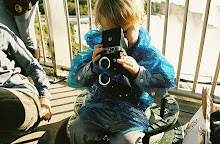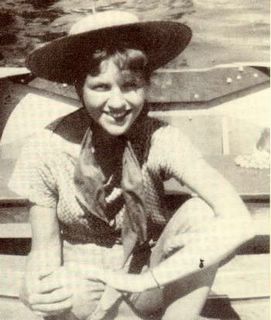Weetzie Crap

young adult tchotchkes 
On Wednesday the New York Times published an interview with that wispy scribbler of lucrative subversions, Francesca Lia Block. Next to the headline they've posted a misty photo of Block herself, confusing, as usual, her collection of "literary" characters for Hot Topic shoppers with her own life. The Times writer regurgitates Block's cultural cache in the same way that Block's world is described on the back of her large-print fables or on websites devoted to her work: "Francesca Lia Block's Los Angeles is a glittering dream world of 'stained-glass Marilyn Monroes shining in the trees, leopard-spotted cars, gardens full of pink poison oleander, where the pollution makes for extra-beautiful sunsets.' " Juxtaposed against a description of the ways in which Block's "real" life overlaps with the fantasy world of her books is a repeated insistence upon the edginess of Block's books, of her daring offering of non-normative characters and desires. Block dares to mention AIDS, eating disorders, incest, and subculture/mall fashions in her little ditties, rolling her bag of "issues" into a metallic commercial for the Adam's Family Reunion-esque quirkiness of her well-marketed teens. Her hackneyed brand of coolness sits firmly in a kind of late-ninties nihilistic primitivism. Her characters give lip-service to caring about "politics" through such affirmations as "I'm into Indians!"
And so Block imposes conventional complexes on style rebels and, voila, sells tons (750,000 at Harpercollins, one of her publishers) of books. Her flashy packaging of what she fancies to be subcultures mass-markets the threshold of content in YA fiction. But what is so constructive about the grocery list multiculturalism she animates?
Block attempts to wield all that glitters into a feisty refutation of the pitfalls of overconsumption and patterns of abuse, but her characters ultimately fail to escape the heavy dose of history they are incredibly shrinking beneath. Block cannot write her way out of the past or the present, and finally offers nothing more than Freud and fairies in this season’s fashions. Through her choice to continually rework fairy tale motifs, she seems to be toying with the idea that the fracturing of archetypal molds might be a world-changing undertaking. Her attempts to rewrite troubled "outsider" teens as dazzling warriors are heroic, but as the title of her collection of the "Weetzie Bat" stories, Dangerous Angels, implies, her fables teeter more toward the exploitation of teenage angst than the exposition of American decadence.





